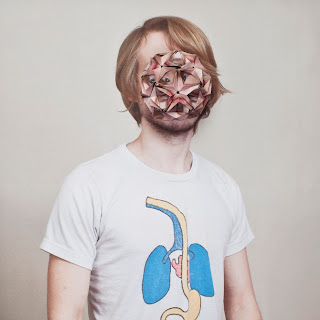I have started to realize that I am actually fan of
portraiture. Not so much the “sit in front of the camera and hope something
interesting happens” or traditional portrait style, but rather portraits that
are non-traditional. Portraits that have a deeper concept and voice than just
the person in front of the lens, portraits that make us ask questions. An
excellent example of this type of portraiture is a series “Cosmic Surgery” from
Alma Haser.
Haser has been working on self-portraits since 2010. Her
more recent work focuses on making portraits of other people. She is interested
in making work that is disquieting or disconcerting. Haser says “origami is
very meditative, you can get lost in the world of folding for hours. It is also
extremely delicate and fragile, so by giving each geometric paper shape
somewhere to sit within the final image, the origami has been given a
backbone.”
This series takes place in three separate stages. First,
Haser photographs her sitter. She then prints multiple images of that subject’s
face. These images are folded into a sophisticated origami construction which
is placed onto the original face of the portrait. Finally, the portrait is
re-photographed.
By placing the origami structure over the sitter’s face,
Haser has obscured our view of the person. Even though the origami structure is
made from the sitter’s face, and we can still see their eyes, lips, and other
important facial features, we still cannot get full view of them. Some of the
portraits are of a single individual with a manipulated face, while other
portraits consist of a parent and child. In these second type of portraits, it
is only the children whose faces have been manipulated. Why does Haser only
manipulate the faces of the children? By doing this she makes them different,
somehow separate from their parent. With all of the manipulated people, but
especially the children, the faces become small sculptures that are awkward and
sometimes eerie. By defacing her subjects, Alma Haser has given us more to
consider when looking at these non-traditional portraits.




No comments:
Post a Comment